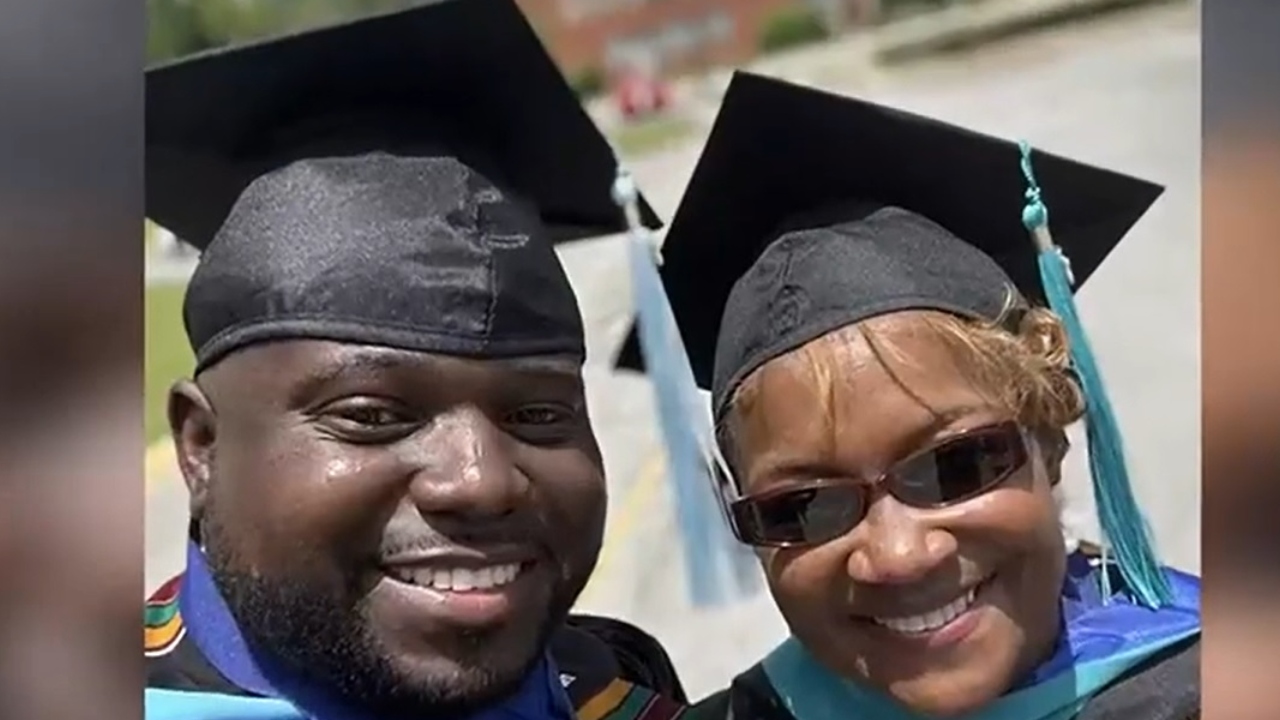As citizens around the world celebrate the end of Gay Pride month with solemn marches and parades, organizers and activists in Tbilisi, Georgia, fight for their basic right to assemble.
In this former Soviet republic in the Caucasus, LGBTIQ + rights have long been a litmus test for democracy and tolerance.
Georgia failed this test on July 5 when Tbilisi Pride organizers were faced with violence from counter-demonstrators and forced to cancel the march.
The Georgian Prime Minister Irakli Garibashvili had accused the “radical opposition” of planning the Pride march in order to sow “unrest”.
He said mobs stormed and ransacked the Pride organizers’ office while Orthodox priests and other journalists attacked.
The police stood by and could not prevent the violence.
These events illustrate how LGBTIQ + advocates in hostile countries like Georgia must cross borders – at great personal risk – to create a public space that allows them to truly celebrate.
Pride marches, starting with Stonewall in 1969, have always been an evolution. Georgia’s LGBTIQ + movement is rushing headlong into this clash, but is also gaining some support in the process.
The day after the violence broke out, over 7,000 people with rainbow flags marched across the capital’s main street to the Georgian parliament. This show of solidarity with the LGBTIQ + community was bold and unprecedented.
Just weeks before Tbilisi Pride, Georgian ultra-conservative activist Levan Vasadze, a member of the group that organized the counter-demonstrations, held a press conference at the Tbilisi Marriott Hotel.
American anti-LGBT activist Brian Brown sat next to Vasadze when he announced his intention to enter Georgian politics. The moment embodies how US President Joe Biden tries to normalize US foreign policy, Trump allies continue to work to promote illiberalism abroad.
Bannon and Trump
Brown swore at the press conference to support Vasadze in the US, including Steve Bannon, and at the same time teased the promise of support for “President Trump himself”.
Brown did all of this despite the fact that his nonprofit 501 (c) 3, the International Organization for the Family, which includes the World Family Congress, was prevented under US law from promoting or against political candidates. The American authorities should take action.
Brown first came to prominence in the late 1990s for his campaign against same-sex marriage in California and his founding of the National Organization for Marriage.
After losing the battle against same-sex marriage in the United States, he turned his attention abroad and became President of the World Family Congress in 2016.
Notably, Brown’s election to this position was announced when he was in Tbilisi at a WCF conference where anti-LGBT forces were gathering to “build a beachhead in the region.” In addition to working with Vasadze, Brown has cultivated relationships with illiberal leaders in Europe such as Hungarian Prime Minister Viktor Orban and former Italian Interior Minister Matteo Salvini.
The WCF was founded in Russia in 1997 at a meeting between Allan Carlson, an American academic and former official in the Reagan administration, and Russian intellectuals.
WCF has been identified as an anti-LGBTI hate group by the Southern Poverty Law Center. Brown continues to cultivate relations with Russia, and after Donald Trump was elected president, he worked to unite Russian and American Conservatives.
Links to the Kremlin are also shared by Levan Vasadze, who made his fortune in Russia. Alexander Dugin, a Russian ultra-nationalist widely regarded as the Kremlin’s chief ideologist – his nickname is “Putin’s brain” – is a close associate. The two met immediately after Vasadze launched his political movement last month.
Vasadze’s attacks on the Georgian LGBTI community are well documented.
In 2019 he organized illegal gangs to break up the first Tbilisi Pride.
Brian Brown was in Tbilisi and joined Vasadze before a crowd gathered on the steps of a church to protest the pride march. Although Vasadze was investigated by the Interior Ministry for setting up vigilante patrols, there were no consequences.
That year, Vasadze reiterated his threats to the organizers and the government to great effect. Tbilisi Pride was canceled due to violent intimidation, likely sparked by rhetoric from Vasadze and Garibashvili.
To combat this wave of repression, Georgian officials must condemn the violence and prosecute those responsible. And the US authorities must hold Americans responsible for the damage they cause overseas democracy in violation of US law and human rights.







